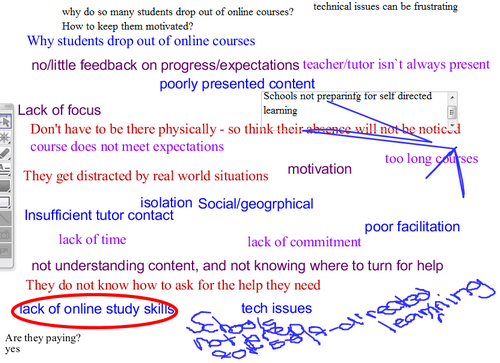
A February 18th, 2013 opinion piece in the New York Times reports on the record for online courses and the results are not good:
"According to Columbia University’s Community College Research Center, for example, about seven million students — about a third of all those enrolled in college — are enrolled in what the center describes as traditional online courses. These typically have about 25 students and are run by professors who often have little interaction with students. Over all, the center has produced nine studies covering hundreds of thousands of classes in two states, Washington and Virginia. The picture the studies offer of the online revolution is distressing. The research has shown over and over again that community college students who enroll in online courses are significantly more likely to fail or withdraw than those in traditional classes, which means that they spend hard-earned tuition dollars and get nothing in return. Worse still, low-performing students who may be just barely hanging on in traditional classes tend to fall even further behind in online courses."
In my experience, the problems with the current crop of online courses are multiple. But they often can be traced back to a failure to use the new tools in ways that actually improve the educational experience for the students.
Sure, it's cheaper for the school to broadcast canned lectures and administer multiple choice quizzes using digital tools - but students are too often left with inferior educational experiences.
And, while some (motivated and busy) students may see taking classes in their pajamas at any time of the day as a great boon - many (less-motivated) students will fall by the wayside, failing to complete the course or getting-by with a bare minimum of learning.
What should educators do?
The research suggests there are solutions:
"Interestingly, [Columbia University’s Community College Research] center found that students in hybrid classes — those that blended online instruction with a face-to-face component — performed as well academically as those in traditional classes. But hybrid courses are rare, and teaching professors how to manage them is costly and time-consuming."
In addition to hybrid classes, educators need to understand and use the interactive functionality (e.g., wrong answers on a quiz lead to specialized course work appropriate for that individual student and retesting of that student until the concept is mastered) and the collaborative learning potential of online education.
Simply videotaping lectures and posting them to a website and monitoring a chatroom is NOT enough.
No comments:
Post a Comment